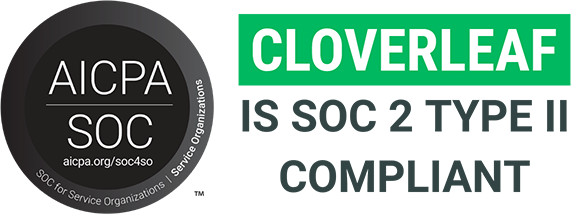Every team has a star player who exhibits enthusiasm and vision beyond their current role. A clear indication of this is when a direct report, during a 1-1 call, eagerly declares their intention: “They would like to be a manager!” This ambition is commendable but also prompts an essential question: Are they ready for the challenge?
Such aspirations reflect personal ambition and mirror the shifting expectations in modern workspaces. With platforms like LinkedIn showcasing management training success stories, there’s no shortage of inspiration. However, understanding and evaluating managerial readiness is critical. How can you determine if you or someone on your team is cut out for a management role? How does an organization measure this readiness, and what does it encompass?
Key Takeaways
The Multifaceted Nature of Managerial Readiness: Managerial readiness isn’t one-size-fits-all. Depending on the sector and organizational goals, defining what constitutes readiness requires understanding both technical expertise and leadership acumen.
- Leadership Beyond Expertise: Being an expert in a particular domain doesn’t guarantee effective management. True leadership blends strategic foresight with interpersonal prowess, ensuring managers can inspire, guide, and set a vision.
- Recognizing Potential Leaders: Identifying the next generation of managers is an art refined through observation and engagement—attributes such as active listening, emotional regulation, and a team-oriented approach signal managerial promise.
- Cultivating Leadership from Within: Proactive nurturing of budding leaders through feedback, mentoring, and development opportunities ensures a robust future for the organization. Tailoring developmental programs and providing the necessary tools and resources are pivotal.
- Investment in People Equals Organizational Resilience: In a rapidly changing landscape, an organization’s success hinges on its dedication to cultivating and championing its people’s growth and potential.

What is management readiness?
The Multifaceted Nature of Leadership
Managerial readiness is not a monolithic concept—it varies based on the sector, organizational goals, and even the cultural context. For instance, what constitutes a successful manager in the field of manufacturing could be poles apart from what’s needed in marketing. At its core, the idea of managerial readiness revolves around an organization’s priorities and purpose.
Technical Know-How vs. Leadership Acumen
A prevalent misconception many companies fall victim to is the idea that subject matter expertise or technical knowledge is the sole criterion for a management position. While this know-how is undeniably valuable, it doesn’t inherently prepare one for a leadership role.
The truth is that being highly knowledgeable about a specific area is a strong asset, but it isn’t the sole indicator of effective managers. The management landscape is laden with experts who falter when placed in a leadership role. The essence of leadership goes beyond expertise; it’s about being able to inspire, guide, and set a vision for a team. Thus, managers must be LEADERS, combining their technical know-how and leadership skills. It’s about gauging leadership acumen—understanding that a manager’s responsibility is multi-dimensional, blending strategic foresight and interpersonal prowess.
Crafting A Blueprint of an Ideal Leader
To properly define managerial readiness in your organization, it’s crucial to invest time and effort in sketching out a profile of the ideal leadership figure for the job description. This profile serves as a benchmark for aspiring leaders and will aid in shaping organizational culture. To help you start, consider the following aspects to help you define what is essential to your team.
7 Key Considerations in Crafting Your Leadership Profile
- Organizational Values: What ethos should leaders embody? How should they reflect and champion the organization’s values?
- Interpersonal Dynamics: Leadership isn’t just about strategy; it’s about people. What interpersonal skills are paramount for success?
- Guidance and Mentorship: Leaders shape their teams. How will they enhance both individual and collective performance?
- Technical and Business Acumen: What degree of business or technical understanding is required for different levels of leadership?
- Navigating Change: Leaders need adept change management and problem-solving skills to lead through change and uncertainty. What resources are available to support them?
- Communication Skills: Beyond just conveying information, how should leaders foster a work environment of open dialogue and cross-functional collaboration?
- Values Integration: A leader’s approach should align with the organization’s values. Whether it’s being approachable or offering timely feedback, how can these values be translated into daily actions?
Defining managerial readiness isn’t just about setting specific benchmarks or criteria. It’s about understanding the multifaceted nature of leadership and ensuring that the individuals being considered for managerial roles embody the technical expertise and leadership capabilities uniquely required in their specific domain. Each organization must critically examine what leadership means to them, what values and behaviors they cherish, and how they foresee leaders propelling the organization forward.
As we’ve outlined, managerial readiness goes beyond technical know-how and deepens into leadership acumen, interpersonal skills, organizational values, and adaptability to change. However, once this foundation is established, the next step is to recognize these attributes in potential leaders.
Up Next: Recognizing the traits of future managers and understanding the subtle yet impactful signs that someone is ready to lead.

HUMAN SKILL PROGRAMS ARE HITTING LIMITATIONS...
- Close the widening gap between learning and on-the-job application
- Overcome the tension of pausing productivity for development opportunities
- Integrate learning so it is actually in the flow of work
- The evolution of human skill development
- What Automated Coaching™ is and how it works.

Recognizing Management Readiness
Lena, a seasoned manager at a fast-growing tech firm, often found herself silently observing the dynamics among her team. As a seasoned leader, she knew recognizing potential managers was an art honed through years of experience. As she settled into her chair for her regular one-on-one sessions with her team members, she couldn’t help but reflect on the subtle signs of leadership that had caught her attention.
She remembered Jacob, always the team player. He was the first to step in whenever the team was up against a tight deadline, offering assistance even if it meant going beyond his job description. His dedication was not just about completing tasks but genuinely ensuring the team’s success.
Then there was Sara, who had recently admitted to a mistake she made on a project. Her accountability stood out. Instead of deflecting the responsibility, she owned up to it, ensuring lessons were learned and similar errors were avoided in the future.
During team meetings, Lena noticed how Michael always listened intently, absorbing what others were saying without bringing the spotlight back to himself. Such active listening was a rare trait and spoke volumes about his potential as a manager.
Amidst the hustle and bustle of corporate life, it was Maria who set an example for work-life balance. She ensured her well-being was in check, understanding the significance of setting healthy boundaries. Her balanced approach was a testament to how she’d be able to lead without burning out, ensuring the well-being of those she leads.
Lena also recalled a recent presentation by Emma. The way she communicated complex ideas with such clarity and effectiveness left an impression on everyone in the room. Her peers respected her for her technical expertise and ability to connect effectively.
And when tensions ran high in the team, Raj showcased impeccable emotional intelligence. He’d ensure the atmosphere remained calm, diffusing potential conflicts and ensuring everyone was heard.
These observations led Lena to incorporate specific questions during her one-on-ones, subtly inquiring about their aspirations and sharing her comments about their leadership potential. She believed in nurturing leadership from within and took it upon herself to guide those budding leaders, even if they didn’t yet recognize their potential.
It’s in these everyday moments, through observation and active engagement, that leaders like Lena identify new managers. By paying attention to the nuances of team dynamics, they cultivate the next generation of leadership, ensuring a robust and visionary future for their organization.
7 Signs Someone Is Ready To Become A Manager
While expressing intent is a clear indicator of managerial aspiration, there are more subtle signs that individuals often exhibit, revealing their potential. Here are some signs that hint at a person’s readiness to step into a managerial role:- Team player with a servant-minded approach. Proactively stepping up, especially during critical moments, showcases their dedication and willingness to go the extra mile.
- Willingness to take accountability for their actions. A budding leader isn’t the type to deflect responsibility or pass the buck. High-potential employees own their actions, develop new skills, and are able to admit mistakes.
- Skillful in active listening. Great listening skills are essential to leading others. People interested in just speaking and directing can find themselves disconnected from their teams. People who actively listen and don’t constantly bring the subject back to themselves may be great candidates for manager roles.
- Prioritize their own well-being and understand healthy boundaries around work. Healthy managers lead to healthy teams. Work is only part of life; it is not responsible for providing for all of our social and emotional needs. Someone who is constantly burning out or overly relying on the organization will have unrealistic expectations of the organization and of others.
- Able to effectively speak and communicate clearly. Great leaders communicate succinctly, clearly, to and with the right people and in a timely fashion.
- Well-respected by other team members. Earning respect from their team signifies an individual’s ability to create a comfortable and trusting environment. This trait is indicative of someone adept at forging strong and effective connections with others.
- Takes time to regulate their emotions. Effective leaders balance vulnerability with diplomacy, especially during challenging communications. They maintain composure and adeptly navigate tense situations to find resolutions.
Cultivating Leadership Potential
A leader can recognize an individual contributor with leadership promise by actively observing these attributes. Regular one-on-one meetings offer a platform to integrate development into everyday work conversations. It’s essential to share feedback about where you notice their leadership potential. Inquire about their vision for the future – do they see themselves leading? Even if they don’t have an immediate vision of stepping into management, continuous encouragement, validation, and guidance can help nurture their latent potential. The key is to stay persistent and committed to cultivating leadership abilities throughout the organization.How Can You Support Someone Who Is Ready to Lead Or Manage?
When supporting those who are preparing to lead or manage, it’s important to articulate strengths and opportunities for growth. Whether a specific position is available, developing these individuals through stretch assignments, coaching, and project management opportunities is still important.
Guided conversations are a cornerstone of leadership development. Whether they’re part of a formal evaluation or casual check-ins, these dialogues can offer invaluable insights into an individual’s leadership trajectory. When engaging in such conversations with potential leaders, delve into these crucial areas:

6 Supportive Ways To Develop New Managers
- Understanding Leadership Styles: Ask them to articulate their vision of leadership. Do they see themselves as more directive or leaning towards a supportive role? How familiar are they with a coaching style of leadership? Our Boss to Coach Playbook can offer more insights into this perspective.
- Harnessing Leadership Strengths: Encourage them to introspect and share their perceived leadership strengths. Discussing how they can further amplify these strengths in their current roles can yield actionable strategies.
- Addressing Leadership Challenges: Just as it’s essential to identify and build upon strengths, recognizing challenges or areas where they can grow is equally crucial. Setting concrete objectives to bridge these gaps can be a proactive step toward leadership readiness.
- Aligning with Organizational Leadership: Gauge their perception of an ideal leader within the organization’s context. Comparing this with the organization’s defined leadership profile can help align their aspirations and the organization’s expectations.
- Seeking Managerial Support: It is vital to understand the specific types of support they expect from their immediate supervisors. This can streamline their journey, ensuring they have the necessary resources and mentorship.
- Resource and Development Needs: Lastly, discuss the tools, resources, or training they feel would best assist them in their aspirations. This feedback can guide the organization in tailoring its developmental programs for maximum impact.
A Roadmap for Success
Once you’ve identified the traits and requirements, it’s time to lay down a roadmap for their journey to leadership.
- Management Training: Consider introducing comprehensive management training programs. This will give them the necessary tools and knowledge to tackle new challenges.
- Readiness Assessment Templates: Providing templates or frameworks for self-assessment can empower these potential leaders to regularly evaluate their progress and readiness.
- Networking Opportunities: Encourage them to tap into the power of social media. Platforms like LinkedIn can be instrumental for young managers to connect, learn, and share insights with a global community of leaders.
- Regular Feedback: Continuous, specific, and timely feedback can fast-track their development. This feedback loop ensures they’re always aligned with the organization’s goals and personal development trajectory.
By investing in their growth and providing a structured path, you’re not just preparing an individual for a managerial role but strengthening the entire organization’s leadership foundation.
Final Thoughts
Managerial readiness is a gradual transformation, a process nurtured over time by exceptional leadership. When stalwarts guide the leaders of tomorrow, the outcome is twofold: organizations not only retain their top talent but also harness their immeasurable potential.
In an era marked by constant flux, where challenges are ever-evolving and new opportunities emerge at every turn, it becomes increasingly evident that the true mark of an organization’s resilience and success is its investment in its people. Those who prioritize and champion this endeavor are the ones poised to navigate the future with confidence and vision.




